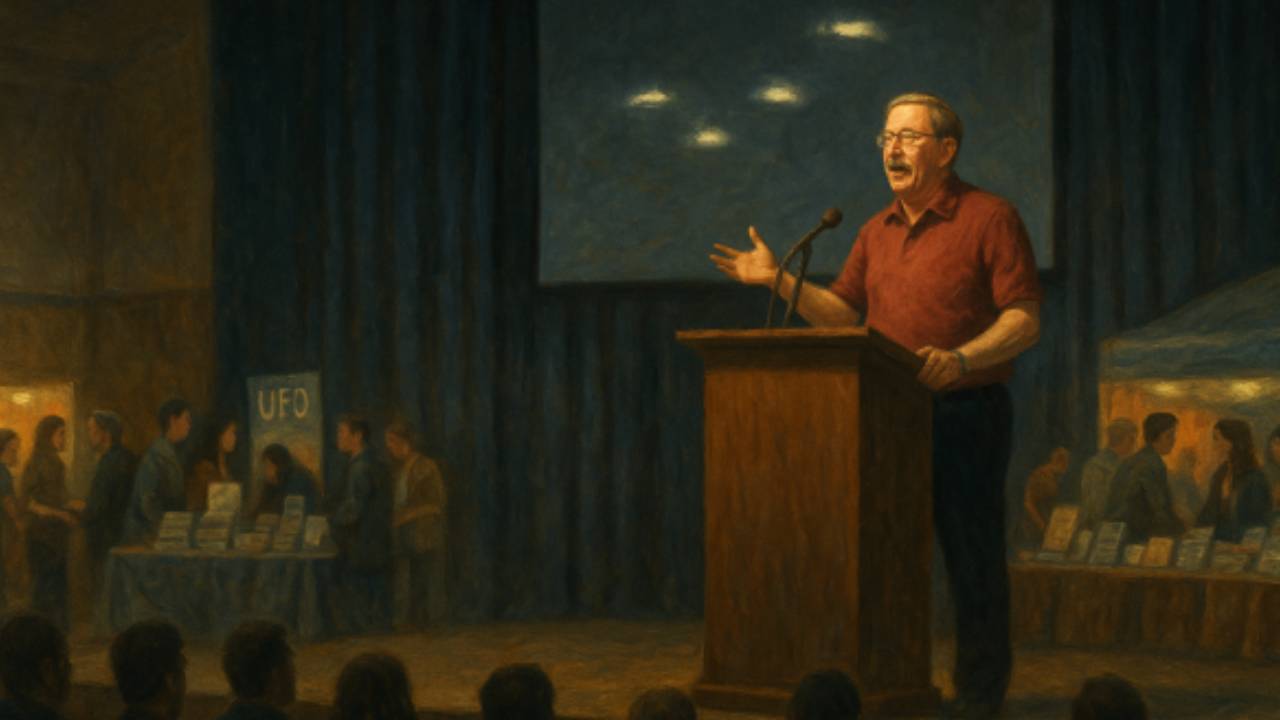Paul Bennewitz and Richard Doty: The UFO Insider Who Profited From Lies
Sep 30, 2025
Richard C. Doty’s name is impossible to separate from Paul Bennewitz. One was convinced he had uncovered proof of aliens, the other helped create the evidence to keep him believing it. Bennewitz’s side of the story ended in collapse. Doty’s continued, built on the same lies he once used to destroy another man.
Doty was a Special Agent with the Air Force Office of Special Investigations in the early 1980s. His job included protecting sensitive military projects, and when civilians like Paul Bennewitz got too close, Doty became involved. What set him apart was the way he went about it. He did not steer Bennewitz away from what he thought he was seeing. He encouraged him.
He handed Bennewitz forged documents with official seals, staged briefings that looked real, and leaked photographs and stories that suggested underground bases, crashed saucers, and secret recoveries. To someone already in a fragile state, this was not harmless misdirection. It was confirmation from an Air Force officer that his fears were true.
Doty’s name later turned up in connection with the Majestic 12 documents. These were the supposed leaked files describing a secret committee overseeing alien contact. They appeared in the 1980s and quickly spread, even though experts pointed out errors right away. The typefaces didn’t exist in the 1940s, the language was wrong for the time, and some agencies mentioned had not even been created yet. The FBI investigated the papers and stamped them “completely bogus” in its official vault records. Despite that, MJ-12 became one of the most enduring UFO stories. Doty has never admitted his involvement, but many researchers believe he helped put them out. What mattered was not whether they were true, but how well they kept the story alive.
Years later, his name was linked to the “Serpo Project.” This story claimed that in the 1960s, twelve U.S. military personnel traveled to another planet as part of an exchange program, with some staying there more than a decade. It spread online in the early 2000s, but like Majestic 12, it fell apart under scrutiny. The astronomy didn’t match, the travel times were impossible, and even UFO researchers who promoted it early on later backed away. Bill Ryan, who co-founded the Project Serpo website and pushed the story at first, later admitted it didn’t add up. Doty, however, kept repeating it in interviews, keeping it alive even after its own promoters abandoned it.
Doty’s Air Force career ended, but he did not leave UFOs behind. Instead, he reinvented himself as a regular presence at UFO conferences, in documentaries, and on podcasts, where he is often billed as a “former AFOSI insider.” He has appeared at events such as UFO MegaCon and the International UFO Congress, speaking to paying audiences and promoting himself as someone with secrets to share.
He has also turned up in films like Mirage Men and in interviews with figures such as Jeremy Corbell, where the same stories he once planted as disinformation are repeated as if they were revelations. In Mirage Men, Doty even admits on camera that he planted lies and manipulated UFO researchers, and he does so with no remorse. What he once spread as disinformation is now the material he sells as insider knowledge.
The most telling detail is that the stories Doty promotes now are the same ones he planted in the 1980s. Back then, he gave Paul Bennewitz forged documents about underground bases, government-alien treaties, and recovered craft. Decades later, those same themes still appear in his talks and interviews, only now they are sold as revelations. Majestic 12 was built on the idea of a secret group managing alien contact. Serpo expanded the “alien treaty” angle into a tale of an interplanetary exchange. Even his recent claims of aliens in custody or hidden agreements are recycled from the same playbook he once used to push Bennewitz deeper into paranoia.
Nothing has changed except the audience. The lies that once served to protect classified projects are now packaged as insider knowledge, generating attention and income. It is not new information. It is the same disinformation, told again and again.
The contrast is clear. Once, Doty was a government agent feeding disinformation that pushed a man into collapse. Now, he sells the same kinds of stories for money and attention. It is the same act, only aimed at a different audience.
What makes it worse is the way he talks about it. In interviews, Doty recalls the Bennewitz case without remorse. He treats it like part of his story, something to boast about. But there is nothing impressive about destroying a man’s life.
Paul Bennewitz was left broken, while Richard Doty moved on and turned the same lies into a career. That is who Doty is today, once a government agent, now a man who profits from the very myths that left another man consumed until the end of his life. Anyone still listening to his stories should remember that.
Bennewitz’s legacy is one of tragedy, a man consumed by lies until there was nothing left. Doty’s legacy is one of exploitation, a man who chose to turn those same lies into income. One was destroyed by the myth, the other still profits from it. That contrast says more than any of Doty’s stories ever could. Bennewitz’s tragedy is remembered by those who care about the truth. Doty’s name survives only because he continues to cash in on a lie. That is not insider knowledge. It is exploitation.
